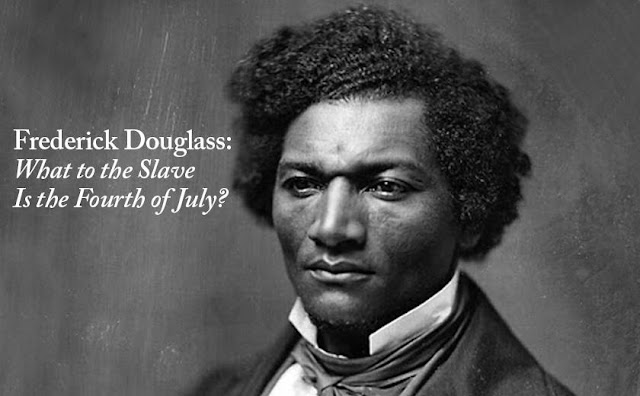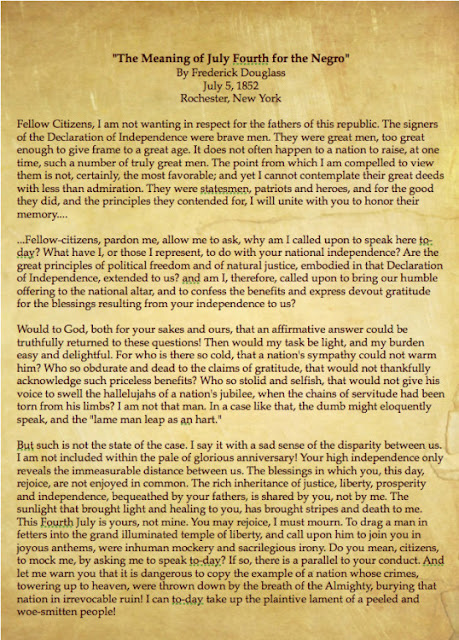On July 5, 1852, abolitionist and ex-slave Frederick Douglass gave a speech at an event commemorating the signing of the Declaration of Independence, held at Rochester, New York’s Corinthian Hall. It was biting oratory, in which the speaker told his audience, “This Fourth of July is yours, not mine. You may rejoice, I must mourn.” And he asked them, “Do you mean, citizens, to mock me, by asking me to speak to-day?”
In 1852 Douglass was 37 years old and already a fixture on Northern platforms. He was not only the best known Black abolitionist, but he also spoke out on other reform issues notably his presence and support at the Seneca Falls Women’s Rights Convention in 1848. He had published his first autobiography, Narrative of the Life of Frederick Douglass, an American Slave, in 1845. By 1852 Douglass had allied himself the most radical of the White abolitionists like William Lloyd Garrison and was publishing his own newspaper, The North Star.
The context of his Rochester address was the Fugitive Slave Laws which were widely unpopular in New England and the fertile radical breeding ground of Upstate New Your, but many whites were still complicit in the kidnapping of runaway slaves.
As always, his audience was not his own people, but the larger White community. He printed the text of his speech in the North Star and it was widely reprinted in other abolitionist publications. He also issued it as pamphlet that sold widely.
Within the now-famous address is what historian Philip S. Foner has called “probably the most moving passage in all of Douglass’ speeches.”
"What, to the American slave, is your 4th of July?
I answer; a day that reveals to him, more than all other days in the year, the gross injustice and cruelty to which he is the constant victim.
To him, your celebration is a sham; your boasted liberty, an unholy license; your national greatness, swelling vanity; your sound of rejoicing are empty and heartless; your denunciation of tyrants brass fronted impudence; your shout of liberty and equality, hollow mockery; your prayers and hymns, your sermons and thanks-givings, with all your religious parade and solemnity, are to him, mere bombast, fraud, deception, impiety, and hypocrisy -- a thin veil to cover up crimes which would disgrace a nation of savages.
There is not a nation on the earth guilty of practices more shocking and bloody than are the people of the United States, at this very hour."
Douglass ends, however, on a note of hope. He predicts the downfall of slavery and oppression, not only in the United States, but around the world.
He quotes a triumphant poem by fellow abolitionist William Lloyd Garrison:
Until that year, day, hour, arrive,
With head, and heart, and hand I’ll strive,
To break the rod, and rend the gyve,
The spoiler of his prey deprive–
So witness Heaven!
And never from my chosen post,
Whate’er the peril or the cost,
Be driven.
Read and/or download Douglass’ full speech here.


No comments:
Post a Comment